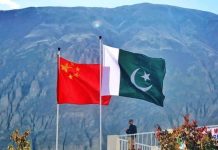ISLAMABAD: On the basis of 100% private equity requirement, the Board of Investment (BOI) is seeking applications from national and international investors for the installation of lubricant manufacturing plants in special economic zones (SEZ), WealthPK reported on Friday.
The Oil and Gas Regulatory Authority (OGRA) will provide all the basic requirements and later on it will also be the implementing agency.
A BOI official told WealthPK that the total investment required for this project is Rs960.01 million for each SEZ. This investment mainly covers capital costs of Rs640.53 million and working capital requirement of Rs310.47 million.
The assumed production capacity of the plant is 3,600,000 litters on annual basis, assuming 300 working days a year. In addition, the plant has also the capacity of 50,000 litters per month blending for the third party.
He said lubricant manufacturing plants (LMP) features include an automatic batch blending system involving a single shift production capacity of 50,000 MT per annum, automatic can and cap manufacturing machines, automatic can filling and capping machines, automatic drum filling machines and tank farm with state-of-the-art warehousing setup and an oil storage capacity of around 6,000 MT.
Plants will be equipped with highly efficient firefighting system and central air-conditioning system. Over 300 tons of central air-conditioning will be carried out for can manufacturing and filling sections. Self-power generation system – two natural gas driven generators of capacity 1200 KVA & 900 KVA each and one stand-by diesel driven generator of capacity 1200 KVA must be installed.
“The law of SEZs has been made to meet global challenges of competitiveness to attract foreign direct investment (FDI). The law allows to create industrial clusters with abundant incentives, infrastructure, and investor facilitation services to enhance productivity and reduce cost of doing business for economic development and poverty reduction.
The law further envisages to reduce processes through SEZs in Pakistan,” the BOI official told WealthPK.
Pakistan’s lubricants sector contains millions of litters and is segmented by multiple products which may include engine oil, transmission fluid, hydraulic fluid, general industrial oil, gear oil, brake oil, and grease.
The main stakeholders are power generators, automotive manufacturers, transportation sector, and heavy equipment assemblersm
Lubricant products consist of base oils and additives. The configuration of base oil in the preparation of lubricants is primarily between 75-90%. Base oils possess lubricating properties and make up to 90% of the final lubricant products.
Pakistan’s consumption of lubricant products is approximately 400 million litres per annum. Locally, the production of lubricants is 50% by registered reclamation and blending. 11% of the lubricants of the total consumption are imported in raw form, which is further converted into finished products while 39% finished lubricants are being imported to meet local demand.
The Pakistan government has formulated an ambitious National Electric Vehicles Policy (NEVP) aimed at capturing 30% of all passenger car and heavy-duty truck sales by 2030, and 90% by 2040. It has set even higher targets for two and three-wheelers, as well as buses: 50% new sales by 2030, and 90% by 2040.
INP





